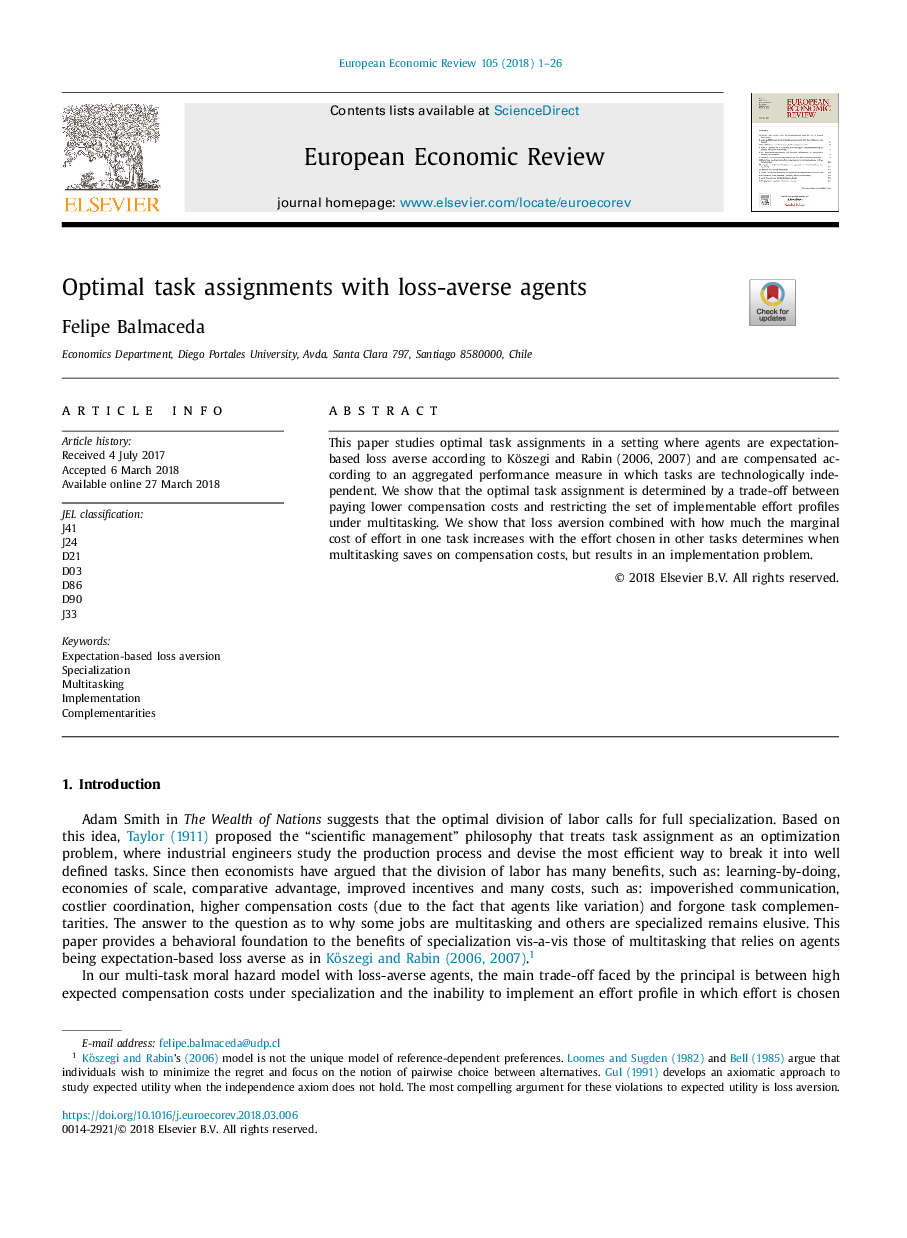| Article ID | Journal | Published Year | Pages | File Type |
|---|---|---|---|---|
| 7351401 | European Economic Review | 2018 | 26 Pages |
Abstract
This paper studies optimal task assignments in a setting where agents are expectation-based loss averse according to Köszegi and Rabin (2006, 2007) and are compensated according to an aggregated performance measure in which tasks are technologically independent. We show that the optimal task assignment is determined by a trade-off between paying lower compensation costs and restricting the set of implementable effort profiles under multitasking. We show that loss aversion combined with how much the marginal cost of effort in one task increases with the effort chosen in other tasks determines when multitasking saves on compensation costs, but results in an implementation problem.
Related Topics
Social Sciences and Humanities
Economics, Econometrics and Finance
Economics and Econometrics
Authors
Felipe Balmaceda,
